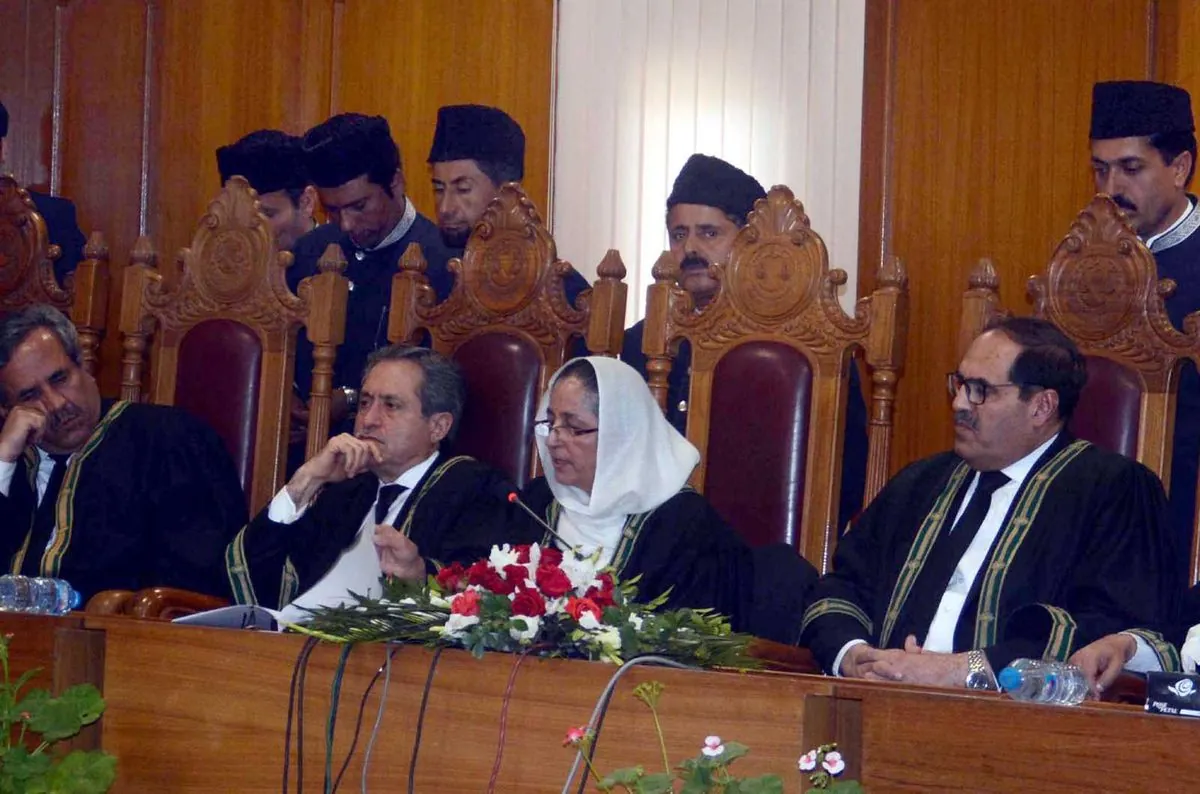Pakistani Court Clears Man of Cybercrime Charges Linked to UK Riots
A Pakistani court has acquitted a local web publisher of cybercrime charges related to spreading false information that fueled riots in Britain. The case highlights the global impact of online misinformation.

In a recent development, a court in Lahore, Pakistan's second-largest city, has exonerated a local web publisher from cybercrime charges. The case, which concluded on August 26, 2024, was linked to the dissemination of false information that allegedly sparked riots in the United Kingdom.
The individual at the center of the case, Farhan Asif, had been arrested by Pakistan's Federal Investigation Agency (FIA) in Lahore. The FIA, which serves as the country's border control, criminal investigation, and intelligence agency, had charged Asif under the Prevention of Electronic Crimes Act (PECA) 2016, a law that governs cybercrime in Pakistan.
The charges stemmed from events that unfolded in late July 2024 in Southport, a seaside town in Merseyside, England. False information circulating online had wrongly implicated an Islamist migrant in the tragic killing of three young girls in a knife attack. This misinformation reportedly fueled riots in Britain, highlighting the potential real-world consequences of online falsehoods.

According to the initial case against Asif, he had allegedly posted an article on his social media account claiming that the attacker was a Muslim immigrant. The post also reportedly included images related to the killings. However, the FIA's investigation failed to establish Asif's involvement in any illegal activity.
Rana Rizwan Akhtar, Asif's legal representative, stated that his client had cooperated fully with the authorities, providing access to all his social media accounts and electronic devices. This cooperation seemingly played a crucial role in the court's decision to acquit Asif.
"He has been absolved in the investigation. The investigation agency could not find any basis to prove that his client was involved in any illegal activity."
The case brings to light several important issues. It underscores the global nature of cybercrime investigations, which often require international cooperation due to the borderless nature of the internet. Moreover, it highlights the ongoing challenges faced by social media platforms in combating the spread of misinformation, a problem that has been linked to real-world violence in various countries.
The incident also touches upon the sensitive issue of Islamophobia, which has been a growing concern in many Western countries. False narratives that unfairly target Muslim immigrants can contribute to social tensions and misunderstandings.
As the world grapples with the impact of online misinformation, many social media platforms have implemented fact-checking mechanisms. However, the rapid spread of false information remains a significant challenge, often outpacing efforts to contain it.
This case serves as a reminder of the delicate balance between freedom of expression, the right to a fair trial, and the need to combat harmful misinformation. It also highlights the importance of thorough investigations and the presumption of innocence in cybercrime cases, where digital evidence can be complex and open to interpretation.
As societies continue to navigate the digital age, cases like this underscore the need for robust legal frameworks, international cooperation, and public awareness to address the challenges posed by online misinformation and its potential real-world consequences.


































